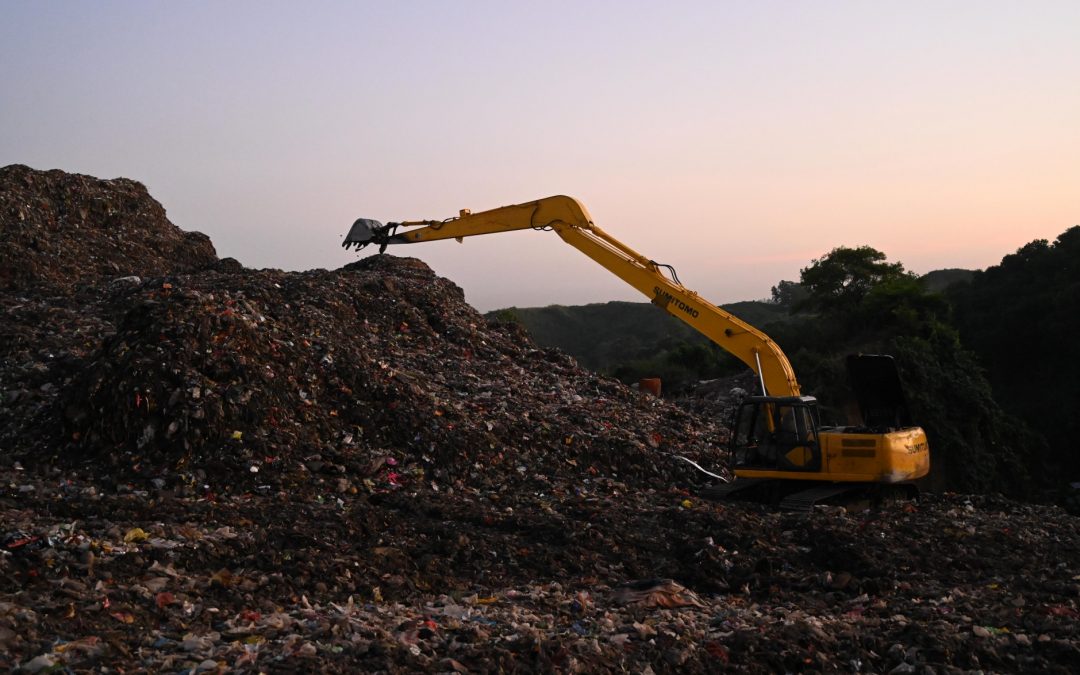The Most Effective Ways to Dispose of Japanese Knotweed Waste in the UK
Learn the most effective ways to dispose of Japanese Knotweed waste in the UK. Find out how to safely and legally dispose of this invasive plant without causing harm to the environment.
Japanese Knotweed is an invasive plant species that can cause severe damage to buildings, roads, and other structures. It is native to Japan, China, and Korea but has become widespread worldwide, including the UK. The plant can grow up to 3 meters in height and is known for its strong and deep roots. Left untreated, Japanese Knotweed can quickly spread and cause significant damage to the environment. Therefore, it is essential to dispose of Japanese Knotweed waste safely and effectively to prevent it from spreading. This article will discuss the most effective ways to dispose of Japanese Knotweed waste in the UK.
Effective Ways to Dispose of Japanese Knotweed Waste in the UK:
-
Chemical Treatment:
Chemical treatment is the most effective way to get rid of Japanese Knotweed. This method involves applying a herbicide to the plant, which will kill it and prevent it from growing back. However, it is essential to note that only licensed professionals should carry out this treatment. The use of herbicides is strictly regulated in the UK, and failure to follow the regulations can result in fines and legal action.
-
Burial:
Burial is another effective way to dispose of Japanese Knotweed waste. This method involves digging a deep hole and burying the plant waste, including the roots, stems, and leaves. The hole should be lined with a root barrier to prevent the roots from spreading further. However, it is essential to note that burying Japanese Knotweed waste can only be done on-site and cannot be transported to another location.
-
Incineration:
Incineration is a safe and effective way to dispose of Japanese Knotweed waste. This method involves burning waste at high temperatures, destroying the plant and its seeds. However, it is essential to note that incineration can only be carried out by licensed professionals, and the waste must be transported to a licensed facility for disposal.
-
Landfill:
A landfill is a commonly used method for disposing of Japanese Knotweed waste. This method involves transporting the waste to a licensed landfill site, where it will be buried. However, it is important to note that landfills are not the most environmentally friendly method of disposal, as they can lead to pollution and other environmental problems.
FAQs:
Q. Can I dispose of Japanese Knotweed waste in my garden waste bin?
A. You cannot dispose of Japanese Knotweed waste in your garden bin. This is because the waste can still contain viable plant material, which can lead to the spread of the plant.
Q. Can I burn Japanese Knotweed waste in my garden?
A. You cannot burn Japanese Knotweed waste in your garden. Burning the waste can cause the plant to spread further and can be harmful to the environment.
Japanese Knotweed is a highly invasive plant species that can cause significant damage to the environment if left untreated. Therefore, It is essential to dispose of the waste safely and effectively to prevent the plant from spreading. The most effective ways to dispose of Japanese Knotweed waste in the UK include chemical treatment, burial, incineration, and landfill. However, following the Environment Agency’s regulations and guidelines is essential to ensure the waste is disposed of safely and legally. Only licensed professionals should conduct chemical treatment and incineration; burying the waste can only be done on-site. A landfill should be used as a last resort.
If you suspect that you have Japanese Knotweed on your property
It is essential to seek professional help to safely remove and dispose of it. It is illegal to allow Japanese Knotweed to spread, and failure to take action can result in legal action and fines.
To conclude, disposing of Japanese Knotweed waste safely and effectively is essential to prevent the spread of this invasive plant species. Follow the Environment Agency guidelines and regulations, and seek professional help if you are unsure how to safely remove and dispose of the plant. Remember, prevention is critical, so if you suspect that you have Japanese Knotweed on your property, take action immediately to prevent it from spreading further.
